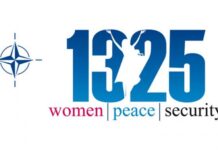Religious Service in the BiH Armed Forces
{gallery}newsletters/4/2/1{/gallery} Last month, the Ministry of Defense of BiH and the Holy See signed a contract by which, when approved by the Parliament and the Pope, the Office of the Catholic Pastoral Care will become the Military Bishop’s Office.
“The Agreement which the Ministry of Defense signed with the Holy See solved one of the problems we had had before in the Religious Service, and that is the issue of administrative-expert jurisdiction”, said the BiH Deputy Defense Minister for Policy and Planning, Ahmet Hadžiomerović.
Significant Difference
“Namely, all religious officials in the BiH Ministry of Defense (MOBiH) are under the responsibility of the Head of Office. Accordingly, there are the Military Mufti Office, Office of the Orthodox Pastor and Office of the Catholic Pastor in the MOBiH. However, in the church and religious community’s structure, the Episcopal level (e.i., the bishop and mufti levels), manages all imams and priests. Therefore, only a bishop can have his priests under his oversight. And our offices had not been at the bishop level yet. Now, with the agreement signed with Vatican, and with a further adjustment of the article that deals with specifications and responsibilities of the state over catholic members of military, police, and so on, we created a special agreement which regulates the service in a new way, according to which the Office of the Catholic Pastoral Care becomes the Military Bishop’s Office“, says Hadžiomerović.
As he explains, it is a significant difference, because the Military Bishop has a status of the Diocesan Bishop, which means it can have its priests, which was not possible until now. “Signing of the agreement with the Serb Orthodox Church is in the procedure and it will solve the issue of the Office of Military Episcopate in the same way. The Office of Military Mufti is already set at the mufti level, so there will be no changes there”, says Hadžiomerović.
As agreed between the MoD BiH and religious communities, there are 35 members of religious service per 10,000 soldiers in the army now, which is in accordance with NATO principles, which stipulate that there should be from 0.2 to 0.5% of them. There are Head Imam, chaplain and priest in the Joint Staff of Armed Forces of BiH (OSBiH), and Staff Imam, chaplain and a priest in the Operational Command and Support Command. In addition, there are brigade and battalion religious officials under them. If the number of members of other religions reaches 3% in OSBiH in total, then that religious community can ask the Ministry of Defense to establish its religious service office too.
The officials who are recommended by the religious communities undergo a special military training and have ranks that correspond to regular officer ranks which are worn on their military uniforms. Members of the Religious Service are allocated to the organizational unit level, but are responsible for a certain territory. They do not carry weapons. Candidates must have a university degree and corresponding psycho-physical abilities. Talking about the structure of the Religious Service, Hadžiomerović emphasizes that they tried to make it compatible with similar services in the armies of the NATO member countries.
“That is why we incorporated the Religious Service in the law according to which the Minister, in collaboration with official churches and religious communities in BiH, will create a Rule Book that will regulate its functioning in the OSBiH. However, we need to have agreements with religious communities before we get to the rule book,” says Hadžiomerović.
These agreements are in accordance with the Law on Religious Rights and Rights of Churches and Religious Communities, and the agreements themselves are actually made between the BiH Council of Ministers and a respective religious community, while the Minister is just a signatory.
Advisers to the Commander
{gallery}newsletters/4/2/2{/gallery} “The agreements with churches and religious communities represent the original arrangement that was, in a way, unified, so the relations with the three big religious communities were regulated in the same way. It is important to emphasize that in the Rule Book there are no numeric limitations. It means we are open for every religion and every church,” states Hadžiomerović.
The members of the Religious Service have two functions within their jurisdiction: to take care of people in the way regulated by their religion and to advice commanders in certain circumstances and difficult conditions on what measures and actions take with some of the members that are under their jurisdiction.
“Being in the army is extremely demanding for human psyche”, says Hadžiomerović. He emphasizes that the job done by the religious service members is very important for calmness and peace of members of the BiH Armed Forces, positively affecting their efficiency and success.
Text and Photo: Safet ŠARIĆ







